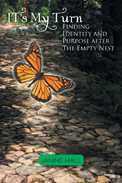
 |
This book consists of a well-written series of essays about the last stage of parenthood: the "empty nest." The author's work looks at the many emotions women go through when their job of active parenting comes to an end. Issues such as aging, stress management, confidence, solitude, and even crafting are addressed in this Christian-leaning book. The author also discusses common stages such as grief, anger, fear, and a sense of purposelessness, giving hope to those who feel vulnerable during the empty nest transition.
Hall writes in an easy, conversational voice that sets the tone for her thoughtful essays on life as an "empty-nester." Primarily offering advice to women and mothers, Hall also acknowledges that men may go through a similarly difficult time when the children leave home. Throughout the book, Hall provides tidbits of wisdom about living a life of purpose to ward off Alzheimer's and other illnesses. She suggests that doing good work for God, and not only for one's fellow man, will result in a strong sense of self-respect.
Hall includes a clever "Stress Vulnerability Questionnaire" for her readers to get a sense of where they are in their journey. This is a great way to get her readers to self-reflect on their own lives and keep them invested in the book. Once the quiz is complete, Hall puts forth advice for where her readers might want to go to get further counseling. She discusses the importance of faith and living in the present moment. She acknowledges that grieving has its place, but, eventually, too much looking backward with sadness can result in a stagnant life. The author encourages her readers to look inward and ask the hard questions: "Why am I angry?"; "How much money is enough?"; "Why am I jealous?"
As a self-titled conservative, Hall reminds her readers to be grateful for the opportunity to live in a free America. She cites quotes and references from various people and writings throughout the book. For example, she includes a quote from Helen Keller: "Character cannot be developed in ease and quiet. Only through experiences of trial and suffering can the soul be strengthened, vision cleared, ambition inspired and success achieved." Hall recommends tapping into the creative side of one's personality and discusses how doing so helped her personally navigate what she calls the "third trimester of life." She suggests that using one's creative side has a great impact on joy and positivity, and being creative can even be a form of therapy.
Overall, this is a helpful summary of how to improve one's life after the children have grown, and perhaps even if a woman is widowed. Hall is encouraging while also delivering solid advice. She writes that finding happiness, joy, and purposefulness in the third trimester requires planning and courage. As long as one is aligned with God, the author promises that her readers will find a new joy in life. Hall offers wise counsel, incorporating Christian beliefs and values throughout the book. Her words will comfort women who feel a great sense of personal loss when they are no longer actively managing their children's lives. This is a thoughtful book with sage advice for anyone transitioning through the empty nest stage of life.